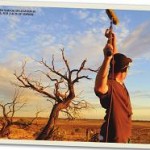Western Australia: A world of their own
 The State has experienced a growth in production as its agency offers new incentives to build a sustainable creative community. Peter Galvin reports from Perth.
The State has experienced a growth in production as its agency offers new incentives to build a sustainable creative community. Peter Galvin reports from Perth.
For ScreenWest’s Harry Bardwell, a core principle for West Australia’s state screen agency is the ideal of building a sustainable creative community. This is the basis for ScreenWest’s programs and strategies says Bardwell, who is the agency’s director of production development. “WA is a wealthy state based on minerals and engineering, but we are also trying to build a strong professional creative sector.”
In terms of the screen industry, it was not so long ago that WA was suffering from a brain drain.

